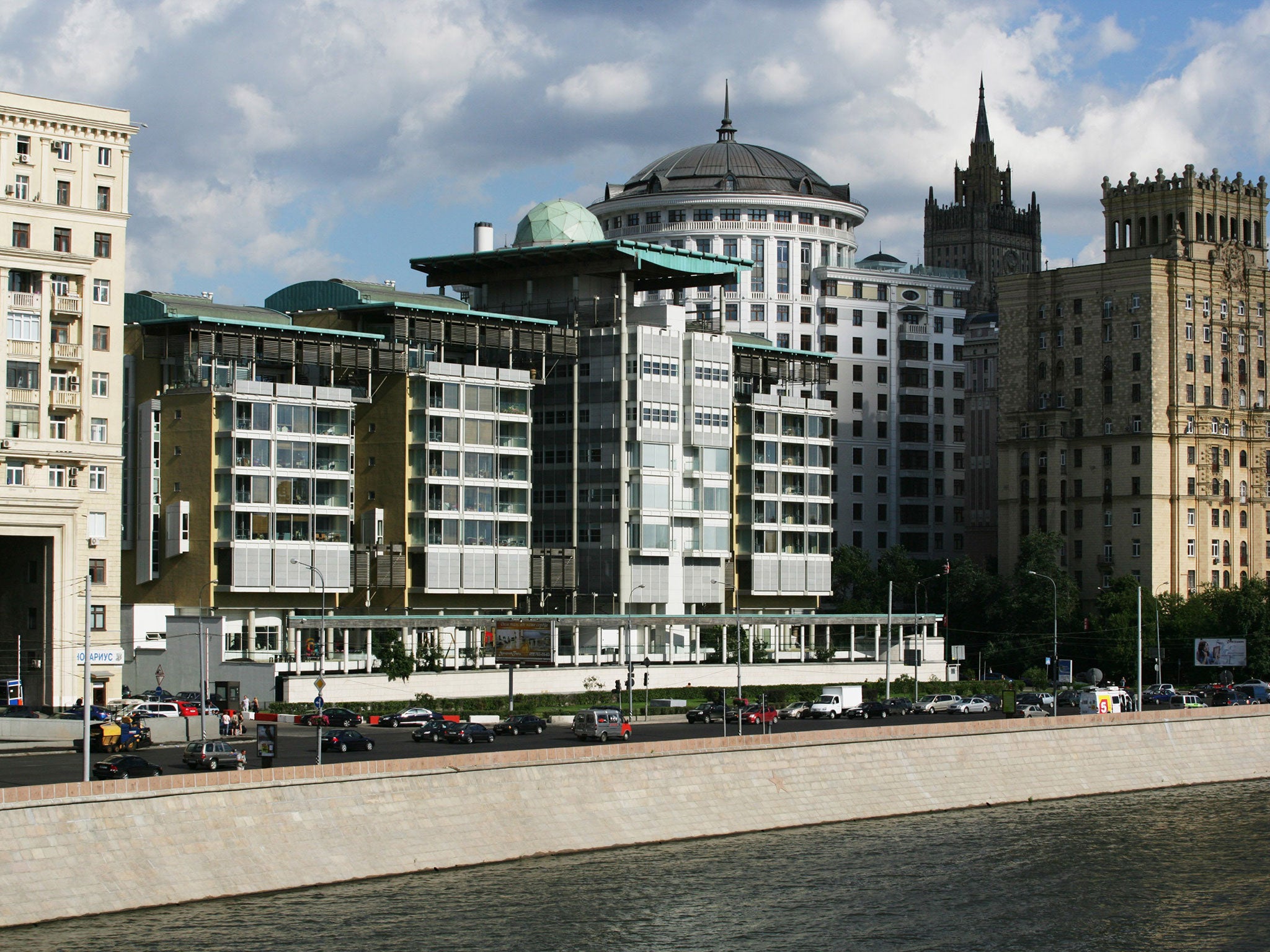Alexander Litvinenko: Killers of Russian dissident 'left radioactive trail around British Embassy in Moscow'
Former diplomat claims Andrei Lugovoi and Dmitry Kovtun left polonium-210 when they arrived to protest their innocence

The killers of the Russian dissident Alexander Litvinenko left a trail of radioactivity around the British Embassy in Moscow when they visited to protest their innocence, it has been claimed.
The former diplomat Paul Knott said that Andrei Lugovoi and Dmitry Kovtun left polonium-210 – the deadly substance used to poison Mr Litvinenko – on the chairs they sat in, the table where one of them had placed their hands, and even in the security officers’ room where they had left a mobile phone.
His revelations came days after a British public inquiry into Mr Litvinenko’s November 2006 assassination ruled it was “probably approved” by the Russian President Vladimir Putin. Sir Robert Owen, the inquiry chairman, also said he was “sure” Mr Lugovoi and Mr Kovtun were the killers.
Mr Knott said that shortly after Mr Litvinenko died from drinking green tea laced with polonium at a Mayfair hotel, the two Russians, already identified as the main suspects, arrived at the Moscow embassy.
The former mid-ranking official, who worked at the embassy between 2004 and 2007, told The Sunday Telegraph: “For reasons we never fully understood, Lugovoi and Kovtun came to proclaim their innocence. When we realised the extent of the trail they were leaving across Europe, I was asked to organise a visit by a specialist radiation detection team.”
The need to keep both the visit and its potential consequences secret from most of the embassy staff, said Mr Knott, led to surreal scenes in the building.
“We had people going round with detection gear in the middle of the night when everybody had gone home,” he told the Sunday Mirror. “It was like something out of Ghostbusters.”
“Sure enough,” Mr Knott added, “we found traces of radiation on the chairs the suspects had sat in and on the table where Lugovoi had placed his hands. There was even a trace in the slot in the security officers’ room where Lugovoi had been required to deposit his mobile phone.
“I spent the next few weeks pretending to exasperated colleagues that I had lost the key to the meeting room while we worked out how to preserve the furniture for evidence and make sure the room was safe for use again.”
Mr Knott said he and his colleagues immediately suspected that Mr Putin, a former KGB officer, had approved Mr Litvinenko’s assassination.
He said: “It was clear to us from the start that the murder was likely to have been ordered by President Putin.
“His governing methods meant it was almost inconceivable that his subordinates would have dared to kill someone in the heart of London using radioactive poison without his approval.”
The impression of state involvement was further reinforced when the British authorities planned a radiation check on an aeroplane in which Mr Lugovoi and Mr Kovtun had previously travelled to London.
Mr Knott wrote on the Telegraph’s website: “I was instructed to call the Russian Ministry of Transport to inform them that the Russian-registered plane about to leave Moscow for London would undergo a security inspection when it arrived. The Ministry called me back shortly afterwards to report that the aircraft had developed ‘technical problems’ and the flight had been cancelled a few minutes before departure.”
Mr Knott said that when Metropolitan Police investigators visited Moscow in December 2006, obstruction by Russian officials included “tightly restricting access to the suspects, insisting lists of interview questions be provided in advance and ‘losing’ the tape recording of one interview with Lugovoi”.
He continued: “I am glad that the inquiry was finally able to reveal openly what those of us in the embassy at the time of the Litvinenko murder have long known: that this was a state-sponsored assassination.”
A Russian Foreign Ministry spokesman dismissed the findings of the Litvinenko Inquiry last week, claiming that its only goal was to “slander Russia”.
Mr Lugovoi, now a Russian MP, called the inquiry’s findings “invention” and suggested that its chairman had “gone mad”.
Mr Kovtun has also proclaimed his innocence, suggesting in April 2015 that Mr Litvinenko may somehow have unwittingly handled polonium, resulting in “suicide by negligence”.
Subscribe to Independent Premium to bookmark this article
Want to bookmark your favourite articles and stories to read or reference later? Start your Independent Premium subscription today.
